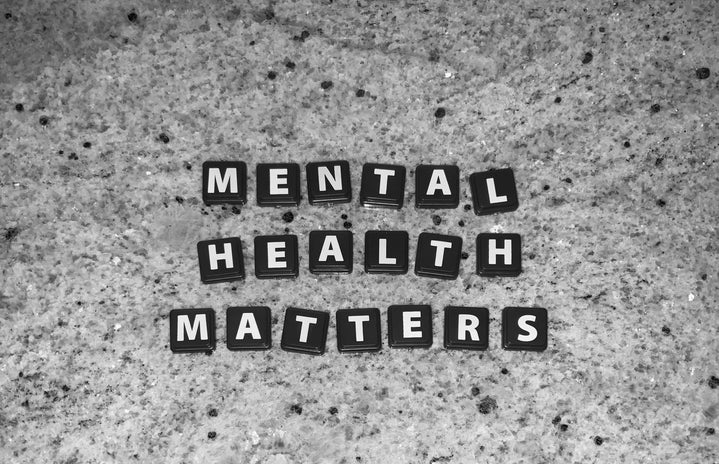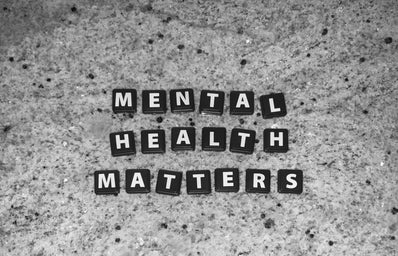This generation of young adults jumps at the opportunity to re-post mental health and self-care related aesthetic infographics and news to their Instagram stories. However, the National Institute of Mental Health classifies us (18-25 year old’s) as the group with the highest prevalence of mental illness among adults in the United States. The shocking aspect of this statistic is reinforced when we look at the percentage of adults who receive mental health services–young adults fall under the category with the lowest percentage. We are aware of the signs and often know how to give advice to others, but there is a deficit when it comes to seeking help for such concerns.
Research has shown that there are several barriers and facilitators for young adults to seek mental health help , which contribute to these statistics. “Young people perceive a number of barriers to help-seeking for mental health problems. These include stigma and embarrassment, problems recognizing symptoms (poor mental health literacy), and a preference for self-reliance,” the Psychiatry department at Boston Medical Center reported.
The effects of these barriers lead to numerous concerns because untreated mental illnesses can cause severe emotional, behavioral and physical health problems. As a generation, we must begin to address the barriers to decrease the prevalence of mental illness.
What can we do?
Stigma surrounding mental health prevents 40% of individuals from seeking care. Reducing the stigma when it comes to the mental health of young adults is crucial to increasing this number.
There is a tendency among those of us who are active on social media to repost the same viral infographics about mental health, current news and everything in between. A lot of this comes with social pressure and the feeling of being judged unless we speak up about issues, even if they are things we are not concerned with or fully informed about. We are so used to clicking “share to story” and going through the motions that the information we receive and share has become extremely passive.
“Change will only happen as a result of tangible, real-world actions,” the Washington Post wrote. To address the stigma that surrounds mental health, our generation needs to emerge from the screens and participate in productive conversations that will lead to education focused on knowing the facts and bringing awareness to behaviors that reinforce stereotypes and myths.
Mental health literacy, a construct that has risen from health literacy, plays a big role in reducing the stigma as well as it affects an individual’s knowledge, and most importantly perceptions, of mental health. Research by The Canadian Journal of Psychiatry demonstrates that poor mental health literacy is strongly correlated with the decreased use of health services and lack of self-awareness when it comes to noticing symptoms and disordered behaviors. Educating the public and creating equal access to mental health literacy resources will lead to a greater self-awareness among individuals when it comes to obtaining mental health information and learning how to advocate for health improvements.
Many of us have been taught to be self-reliant from such a young age, but this has consequences. As such a self-reliant group that is less likely to reach out for help, we must realize that our mental health is not a defining characteristic and treat it like any other illness. We must seek care to reduce the stigma that surrounds mental health.
What is the role of primary care in mental health?
The dreaded mental health survey we fill out at our annual check-up may have more value than we could have ever imagined.
“Family physicians are well-equipped to provide mental health services and are one of the primary sources for mental health care in the U.S.,” according to the American Academy of Family Physicians; that is, if we begin to be honest and have open conversations about or concerns. Sixty to -80% of Americans are not fully truthful with their doctors, and as the number continues to grow, patients suffer more.
Primary care physicians want to ensure that all aspects of a patient’s health are taken care of. Because of this, they can emphasize the link between mental and physical health and direct patients toward the correct care through collaboration and treatment plans. Primary care is truly the entry point into healthcare for many. It is imperative that those doctors continue to address mental health as a key aspect of patient visits as it creates a more accessible way for patients to obtain health information with less risk of surrounding stigma.
“Mental disorders are treatable, many in primary care through training of primary care doctors, nurses and other health workers; yet the treatment gap remains enormous,” according to the World Health Organization. If we begin to empower and engage individuals in our communities and work towards redesigning healthcare to advocate for those who need it most, we can raise awareness about mental health issues and give a platform for open conversations that reduce the negative stigma.
Our generation needs change, but this change will only come if we are willing to be open and talk about the things that make us most uncomfortable.
UF’s mental health resources: https://counseling.ufl.edu/resources/
Mental Health First Aid resources: https://www.mentalhealthfirstaid.org/mental-health-resources/


